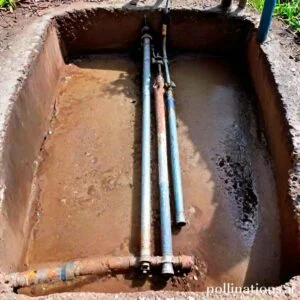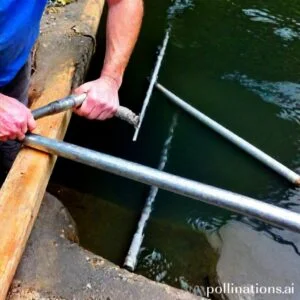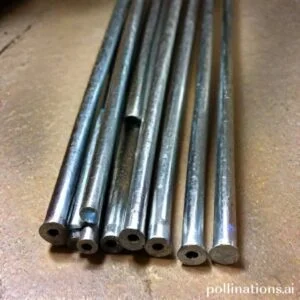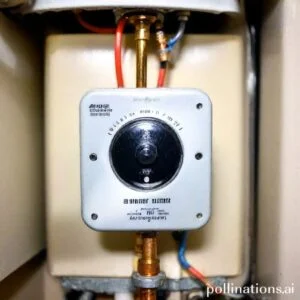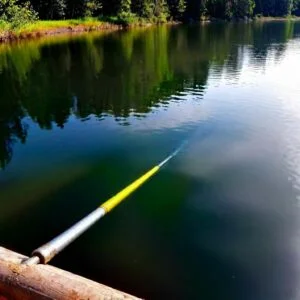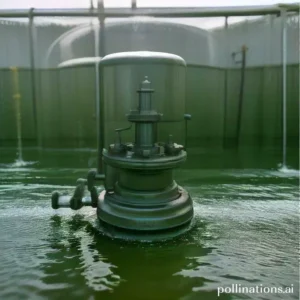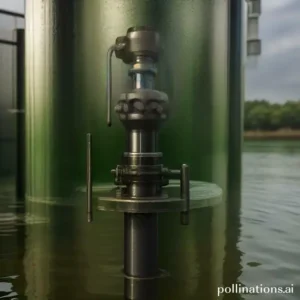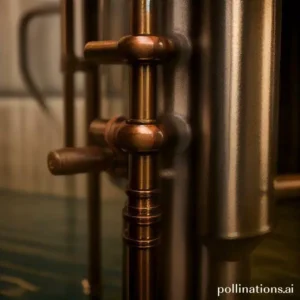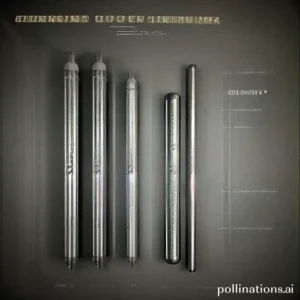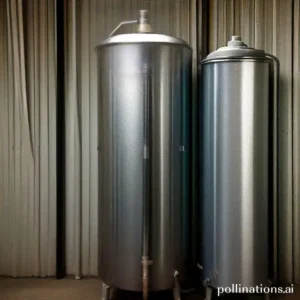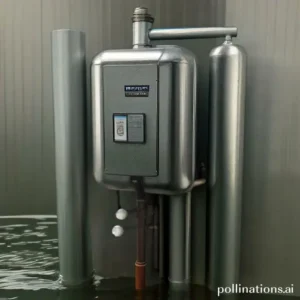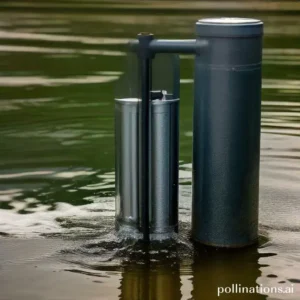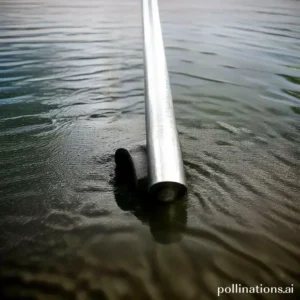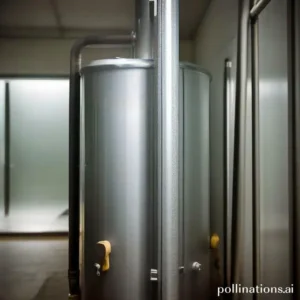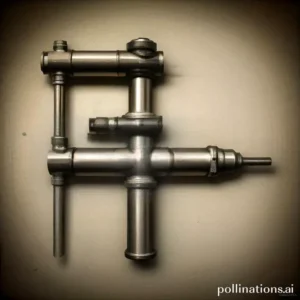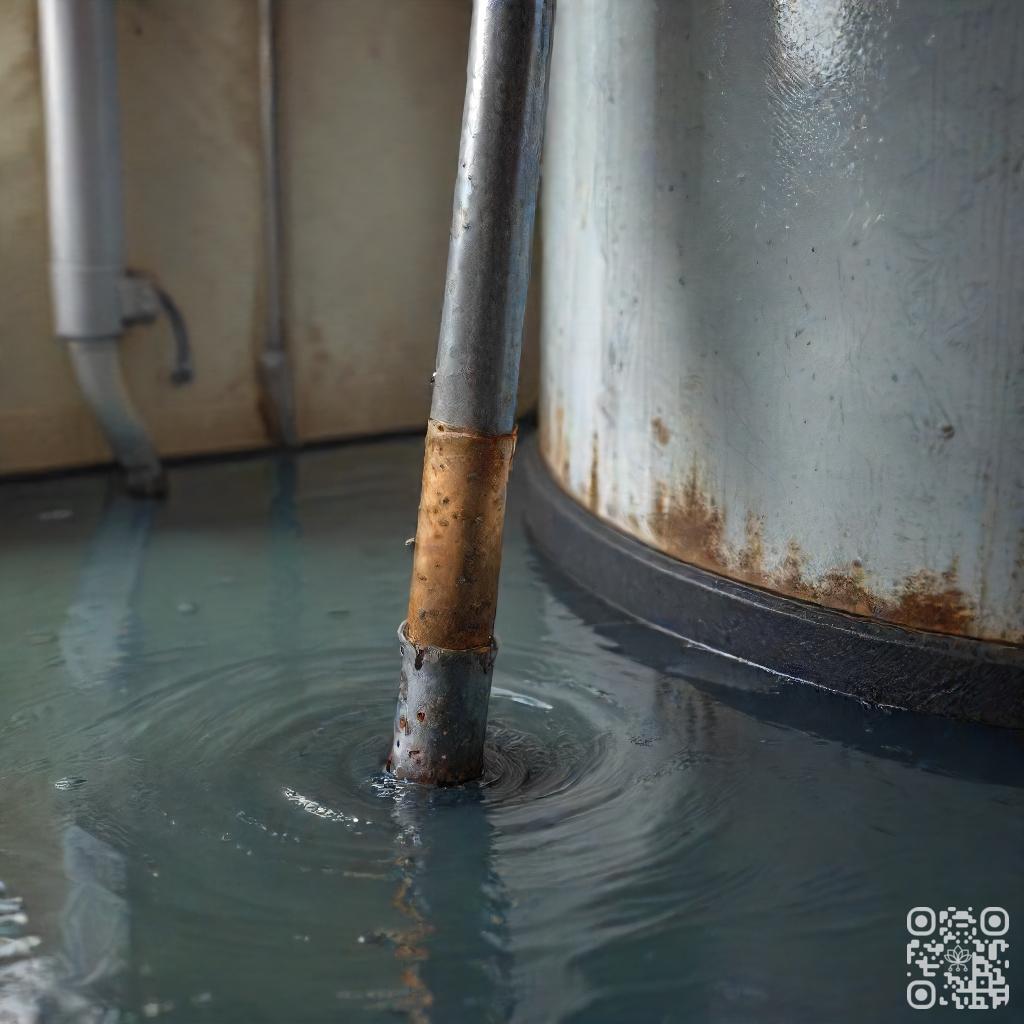
The anode rod plays a crucial role in water heater maintenance. It is responsible for preventing corrosion and extending the lifespan of the water heater.
By attracting corrosive elements, the anode rod sacrifices itself to protect the tank from rust and deterioration. Regular inspection and replacement of the anode rod is essential to ensure the optimal performance of your water heater.
Neglecting this maintenance task can lead to costly repairs or the need for a new water heater altogether. Keep your water heater in excellent condition and enjoy hot showers for years to come by prioritizing the importance of the anode rod.
How an Anode Rod Works
Anode rods play a crucial role in maintaining the longevity and efficiency of water heaters. Comprehending the science behind anode rods is essential for homeowners looking to protect their investment and avoid costly repairs.
The Science Behind Anode Rods
Anode rods are typically made of magnesium, aluminum, or a combination of both. These metals are highly reactive and sacrifice themselves to protect the steel tank of the water heater. This sacrificial process is known as galvanic corrosion.
When water enters the tank, it carries dissolved minerals and impurities. These minerals act as electrolytes, creating an electrically conductive environment inside the tank. The anode rod, which is connected to the steel tank, attracts the electrical charge and begins to corrode instead of the tank itself.
The anode rod oxidizes and forms a layer of corrosion, which gradually dissolves into the water. As the rod corrodes, it releases electrons that neutralize the electric charge and prevent the tank from corroding. Regular inspection and replacement of the anode rod are crucial to ensure its effectiveness.
How Anode Rods Prevent Corrosion in Water Heaters
Anode rods are designed to attract corrosion-causing elements, such as sulfur and oxygen, which are common in water supplies. By sacrificing themselves, anode rods prevent these elements from attacking the steel tank, significantly extending its lifespan.
Without anode rods, the tank would be directly exposed to corrosive elements, leading to rust and leaks. Over time, corrosion weakens the tank, causing it to fail and potentially resulting in water damage to the surrounding area.
Regular maintenance, including checking the anode rod’s condition and replacing it when necessary, is essential for preventing corrosion in water heaters. By ensuring the anode rod is functioning properly, homeowners can protect their investment and enjoy reliable hot water for years to come.
| Benefits of Anode Rods | |
|---|---|
| 1. Prolongs Water Heater Lifespan: | Anode rods significantly extend the lifespan of water heaters by preventing corrosion and rust. |
| 2. Reduces Maintenance Costs: | Regularly replacing anode rods is a cost-effective way to prevent costly repairs or premature water heater replacement. |
| 3. Improves Water Quality: | By attracting corrosive elements, anode rods help maintain clean and healthy hot water for everyday use. |
Signs of a Worn Out Anode Rod
As for maintaining your water heater, it’s important to keep an eye on the condition of the anode rod. The anode rod plays a crucial role in preventing corrosion within the tank, but over time, it can become worn out. Here are some signs that indicate your anode rod may need to be replaced:
1. Decreased Hot Water Supply
If you’ve noticed a decrease in the amount of hot water your heater is producing, it could be a sign that your anode rod is worn out. As the rod deteriorates, it becomes less effective at preventing corrosion, which can lead to a buildup of sediment in the tank. This sediment can reduce the hot water supply, leaving you with less hot water for your daily needs.
2. Rusty Water
Another common sign of a worn out anode rod is the presence of rusty water. When the rod is no longer functioning properly, the tank can begin to rust from the inside. This rust can then mix with the water, resulting in a brownish discoloration. If you notice rusty water coming from your faucets or showerheads, it’s a clear indication that your anode rod needs attention.
3. Foul Odor
A worn out anode rod can also contribute to a foul odor coming from your water heater. As corrosion takes hold within the tank, bacteria can thrive and produce a sulfurous smell. If you detect a rotten egg-like odor whenever you use hot water, it’s a sign that your anode rod is no longer providing adequate protection against corrosion.
4. Strange Noises
If you hear strange noises coming from your water heater, it could be a result of a worn out anode rod. As corrosion builds up inside the tank, it can create pockets of trapped air. When the water heater heats up, these pockets of air can cause banging or popping sounds. If you notice any unusual noises coming from your water heater, it’s best to have your anode rod checked.
5. Leaks
One final sign of a worn out anode rod is the presence of leaks. As corrosion eats away at the tank, it can weaken the metal and cause it to develop small holes or cracks. These leaks can result in water damage to your home and should be addressed immediately. If you notice any signs of water leakage around your water heater, it’s important to have your anode rod inspected and replaced if necessary.
By keeping an eye out for these signs, you can ensure that your water heater continues to function properly and efficiently. Regularly checking and replacing the anode rod when needed will help extend the lifespan of your water heater and prevent costly repairs in the future.
How to Replace an Anode Rod
1. Tools Needed
Before you begin replacing the anode rod in your water heater, make sure you have the following tools:
- Wrench: A wrench will be necessary to remove the old anode rod and install the new one.
- Teflon tape: Teflon tape will help ensure a tight seal when installing the new anode rod.
- Bucket: You’ll need a bucket to catch any water that may leak out during the process.
- Rags: Keep some rags handy to clean up any spills or drips.
2. Steps to Replace Anode Rod
Follow these steps to successfully replace the anode rod in your water heater:
- Turn off the power: Before starting any work, make sure to turn off the power to the water heater.
- Drain the tank: Attach a garden hose to the drain valve on the water heater and drain the tank completely.
- Locate the anode rod: The anode rod is usually located on top of the water heater. Use a wrench to loosen and remove the old anode rod.
- Inspect the rod: Check the condition of the old anode rod. If it is heavily corroded or worn out, it’s time for a replacement.
- Apply Teflon tape: Wrap Teflon tape around the threads of the new anode rod to create a tight seal.
- Install the new rod: Use the wrench to tighten the new anode rod into place.
- Refill the tank: Close the drain valve and turn the water supply back on to refill the tank.
- Turn on the power: Once the tank is full, turn the power back on to the water heater.
3. Tips for Successful Replacement
Here are some tips to keep in mind when replacing the anode rod:
- Regular maintenance: It’s important to regularly check and replace the anode rod to extend the lifespan of your water heater.
- Use a flexible rod: Consider using a flexible anode rod if there is limited space above your water heater.
- Follow manufacturer’s instructions: Always refer to the manufacturer’s instructions for specific guidance on replacing the anode rod.
- Consider a professional: If you’re unsure or uncomfortable with the process, it’s best to hire a professional to replace the anode rod for you.

Types of Anode Rods
Anode rods are an essential component in water heaters, protecting the tank from corrosion and extending its lifespan. There are several types of anode rods available, each with its unique properties and benefits.
Magnesium Anode Rods
Magnesium anode rods are the most common type used in water heaters. They are highly effective at preventing corrosion and are suitable for areas with soft water. Magnesium anode rods are known for their high level of sacrificial capacity, meaning they corrode more rapidly than the tank, protecting it from rust and deterioration.
Aluminum Anode Rods
Aluminum anode rods are another popular option for water heaters. They are particularly effective in areas with hard water, which contains a high level of minerals. Aluminum anode rods create a protective oxide layer on the surface of the tank, preventing the minerals from causing corrosion. They have a longer lifespan compared to magnesium anode rods but offer slightly less sacrificial capacity.
Zinc Anode Rods
Zinc anode rods are often used in water heaters connected to well water systems. Well water has a higher level of acidity, which can accelerate corrosion. Zinc anode rods are specifically designed to combat this issue by reacting with the acidic elements and neutralizing them. They provide excellent protection against corrosion in well water environments.
Combination Anode Rods
Combination anode rods are a hybrid option that combines different metals to maximize the protective benefits. They typically consist of a core made of aluminum or magnesium and a layer of zinc or another metal. Combination anode rods offer enhanced corrosion protection and are suitable for various water conditions.
Anode Rod Comparison
| Anode Rod Type | Sacrificial Capacity | Water Compatibility | Lifespan |
|---|---|---|---|
| Magnesium | High | Soft Water | 4-6 years |
| Aluminum | Moderate | Hard Water | 6-8 years |
| Zinc | Moderate | Well Water | 2-4 years |
| Combination | High | Various | 5-7 years |
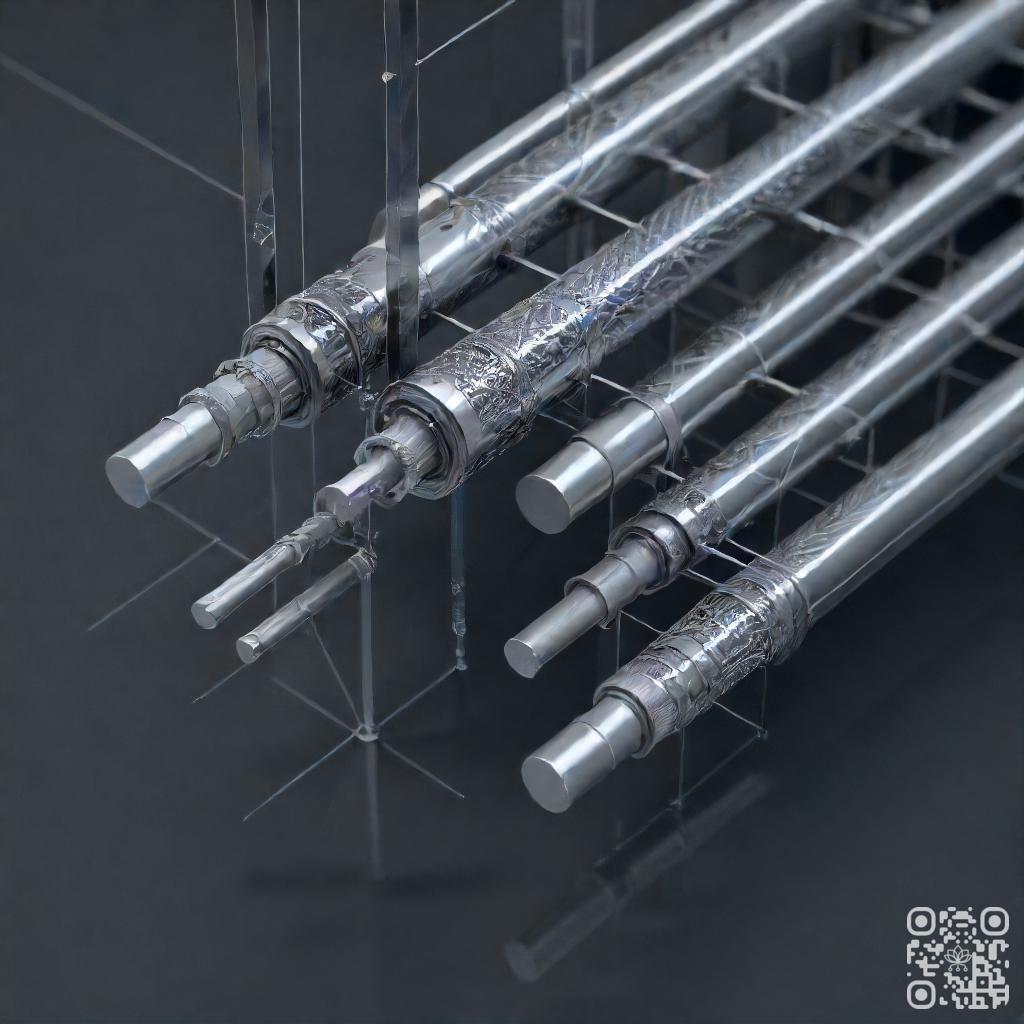
Maintenance Tips for Anode Rods
Regular Inspection
Regularly inspecting your anode rods is essential to ensure the efficient functioning of your water heater. By examining the condition of the anode rods, you can identify any signs of corrosion or wear and take appropriate action.
Flushing the Water Heater
Flushing your water heater on a regular basis is crucial for maintaining the performance and longevity of your anode rods. By removing sediment and mineral buildup from the tank, you can prevent it from affecting the effectiveness of the anode rods.
Adjusting the Temperature
Properly adjusting the temperature of your water heater can also contribute to the optimal performance of the anode rods. Setting the temperature to the recommended level can help prevent excessive strain on the rods and extend their lifespan.
Professional Maintenance
Meanwhile regular inspections and maintenance can be done by homeowners, it is advisable to seek professional help for a thorough check-up and maintenance of the anode rods. Professionals have the expertise and tools to ensure that your anode rods are in top condition.
| Tip | Benefit |
|---|---|
| Regular Inspection | Identify corrosion or wear |
| Flushing the Water Heater | Remove sediment and mineral buildup |
| Adjusting the Temperature | Prevent excessive strain on the rods |
| Professional Maintenance | Thorough check-up and maintenance |
Bottom Line
Regular maintenance of your water heater is crucial to ensure its longevity and efficiency. One of the most important components of a water heater is the anode rod, which helps prevent corrosion and extends the life of the tank. By replacing the anode rod every few years, you can save money on costly repairs and replacements down the line.
Ignoring the anode rod can lead to sediment buildup, rust, and leaks, which can ultimately damage your water heater and even your home. So, if you want to keep your water heater running smoothly and avoid unexpected breakdowns, make sure to prioritize anode rod maintenance as part of your routine upkeep.
Read More:
1. Best Materials For Water Heater Anode Rods?
2. Can A Corroded Anode Rod Be Reused In Water Heater?
